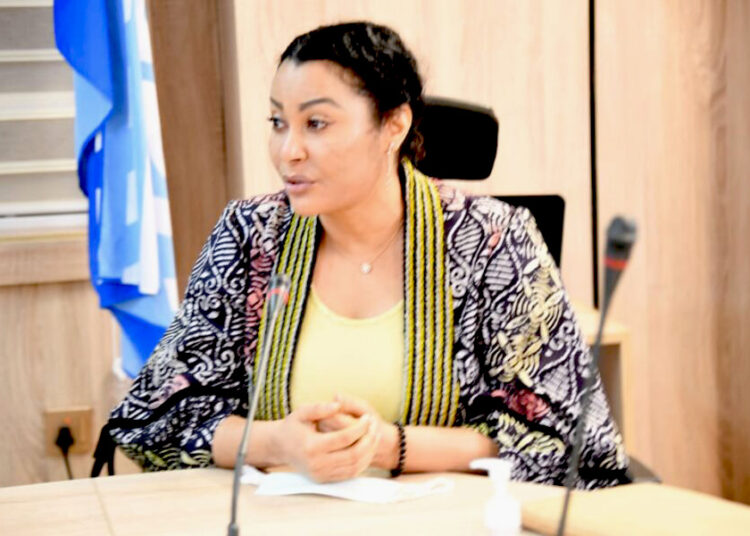The federal government has launched a structured policy dialogue platform designed to bridge the gap between policymakers and the private sector, marking a renewed effort to foster an inclusive, business-friendly economic environment that drives growth and investment nationwide.
Speaking in Lagos at the inaugural edition of the Government–Private Sector Dialogue Series (GPS), South East Finance and SME Growth Roundtable, minister of State for Finance, Dr. Doris Uzoka-Anite, said the initiative marked a new phase in the administration’s commitment to institutionalising collaboration with businesses, in line with President Bola Ahmed Tinubu’s agenda for a private sector-driven economy.
According to her, the dialogue represents a deliberate step toward making the government more responsive, accountable, and inclusive, especially in addressing policy bottlenecks that affect businesses.
This is the most business-friendly president that Nigeria has had in recent history, Uzoka-Anite declared, adding that, “the president’s directive to us is obvious: we must work hand in hand with the private sector to remove every obstacle standing in the way of enterprise growth.”
She explained that the Tinubu administration’s Renewed Hope Agenda is anchored on rebuilding the economy and creating an environment where hardworking Nigerians and businesses can thrive, free from the constraints of policy uncertainty, inflation, and weak infrastructure.
Uzoka-Anite noted that, while the government acknowledges the short-term pains from recent fiscal and monetary reforms, the policies were already yielding results, citing the unification of the foreign exchange market, removal of fuel subsidy, and fiscal discipline measures as bold steps that have restored investor confidence.
“These policies have sent a clear message to investors at home and abroad that Nigeria is open for serious business once again,” she said.
On access to finance, the minister disclosed that the federal government is expanding credit guarantees and simplifying lending processes through institutions such as the Bank of Industry (BoI), the Development Bank of Nigeria (DBN), and the newly established Presidential Initiative on Consumer Credit.
She also revealed that the ongoing tax reforms, led by the Presidential Committee on Fiscal Policy and Tax Reforms, chaired by Taiwo Oyedele, aim to simplify the country’s tax structure and reduce multiple taxation, particularly for small and medium-sized enterprises (SMEs).
“These are not abstract policies. They are concrete, targeted measures to ensure that the spirit of enterprise finds full expression in a modern and competitive Nigerian economy,” she stressed.
Uzoka-Anite, who hails from the South-East, assured that the region would benefit equitably from federal development projects, including the rehabilitation of major transport corridors and the creation of industrial clusters.
“To our brothers and sisters in the Southeast, the Federal Government sees you, values you, and is committed to ensuring that our region is not left behind,” she said. “From roads and rails to export processing zones, plans are underway to reposition the Southeast as a hub of manufacturing, innovation, and export in West Africa.
She disclosed that the dialogue had also facilitated the establishment of the Lagos Igbo Consultative Council, following engagement with the Lagos State Government, to strengthen communication between the state and the Igbo business community.
Uzoka-Anite urged business leaders to transition from “survival mode to influence mode,” warning that entrepreneurs who fail to participate in policy discussions risk being excluded from critical decision-making processes.
“As a minister, I am working every day to stabilise our economic environment, restore confidence, and create a fairer playing field for enterprise,” she said. “While government can create the framework, it is entrepreneurs like you who will build the future.”
She added that the Government–Private Sector Dialogue Series is a platform for mutual understanding and collaboration, where policies are shaped not just for the people, but with the people.
“When government opens its doors to dialogue, it sends a clear message that policy is not made for the people, but with the people,” Uzoka-Anite stated. “This dialogue represents that vision, a partnership for progress and prosperity.”





